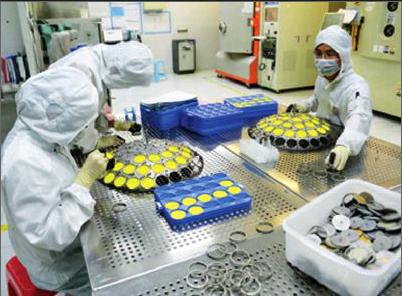Summer Flow
2014-09-15



Chinese railways have so far carried a record number of passengers during the summer peak travel period that started in July, the China Railway Corp. (CRC) said on August2.
The CRC has added new trains to cope with the increasing number of passengers.
University students who have ended their summer holidays will start returning to schools in August and the two-month summer travel peak period will end on August 31.
Home for Orphans
China will build more child welfare institutions in county-level regions as part of its efforts to improve welfare networks, according to the Ministry of Civil Affairs.
The ministry plans to establish homes in counties with a population of more than 500,000 people to provide 35,000 more new beds for orphans in the next three to five years.
“Most orphans live in the countryside but child welfare agencies are available in only a minority of countylevel regions, and about 80 percent of beds for orphans are provided in cities,”said Dou Yupe, Vice Minister of Civil Affairs.
The authorities began to address the supply-demand imbalance a few years ago with 463 institutions built from 2006 to 2010.
According to ministry statistics, China had 549,000 orphans by the end of 2013, with only 98,000 beds available for them.
Around 110,000 orphans live in social welfare homes, including more than 50,000 living with old people or the disabled.
Student ID
Chinas education authority announced on August 5 that it is to assign each primary and secondary student with an exclusive ID number.
The Ministry of Education (MOE) ordered provincial education authorities to work with public security authorities to verify student IDs in their jurisdictions, giving priority to those about to graduate from primary, junior and senior high schools.
After rescinding duplicate or incorrect IDs, the MOE will collate data into a nationwide database.
According to the MOE, the database will help track students who migrate with their parents and those left at home by parents who travel for jobs, providing better care and services to such children.
The MOE said the database will also improve management of student aid programs, including nutrition enhancement and financial subsidies.
The database will also help education authorities to rein in school enrollment irregularities. In China, enrollment into good schools can give rise to corruption.endprint
Lab Underground
China has begun expanding the worlds deepest underground lab in southwestern Sichuan Province, where scientists have been conducting experiments on mysterious “dark matter.”
The second-phase construction of the Jinping Underground Laboratory, located at 2,400 meters under the surface of Jinping Hydropower Station, was launched on August 1 by Tsinghua University and Yalong River Hydropower Development Co.
The construction, scheduled to be completed by the end of 2015, will increase the labs space to 120,000 cubic meters, allowing more experiments to be carried out simultaneously, the university said.
The Jinping lab, opened in December 2010, provides a “clean”space for scientists to pursue the invisible substance known as dark matter. Researchers said the extreme depth helps block most cosmic rays that can hinder observation.
The lab has accommodated a project called the China Dark Matter Experiment, whose results were published in scientific journal Physical Review in 2013.
Scientists are still searching for evidence to prove the existence of the hypothetical dark matter, which accounts for over a quarter of the universes mass-energy balance but has not been directly detected.
Waste Disposal
China has begun to build its first facility for the disposal of highly radioactive liquid waste, using a technique that combines the liquid with glass to form a solid, the China National Nuclear Corp.(CNNC) said on August 1.
The techniques for disposing of low- and medium-level radioactive liquid waste are considered mature, but those for disposal of more radioactive grades still require breakthroughs.
With glass solidification, radioactive waste solution is processed and mixed with additives. It is then combined with glass and the mixture is heated. When it cools, it becomes a solid glass or ceramic product.
The CNNC said glass solidification is the most effective method to dispose of highly radioactive liquid waste. In cooperation with domestic and international institutions, the CNNC conducted successful tests of the technique and was awarded a construction permit in February.
The CNNC said the new permit will increase Chinas capacity to safely manage radioactive waste.
Food Safety
Several Chinese cities have piloted the merging of quality watchdogs to ensure food safety.
Tianjin in north China set up the Tianjin Market and Quality Supervision Administration by merging three municipal government departments—the industry and commerce administration, quality and technical inspection as well as the food and drug administration.endprint
